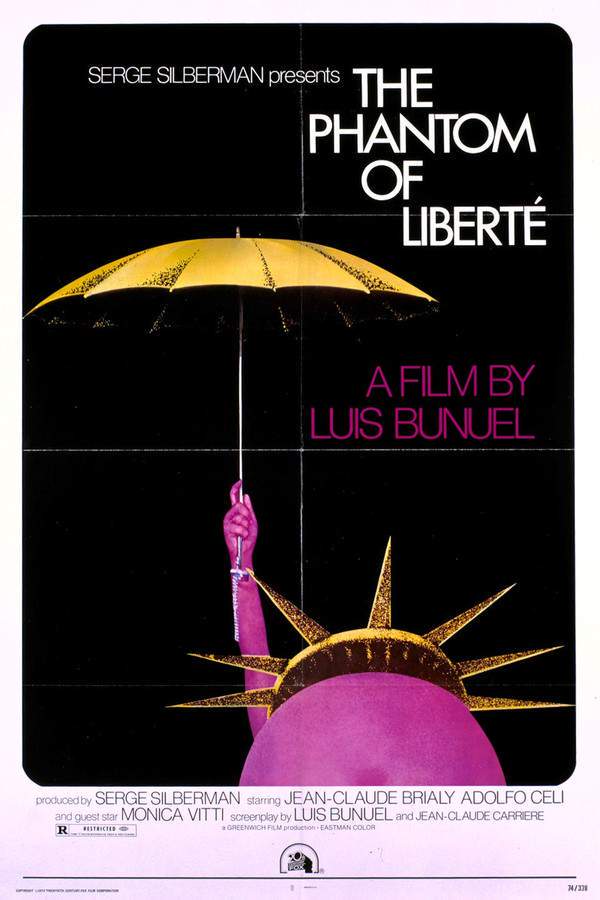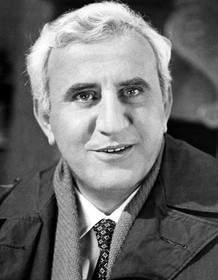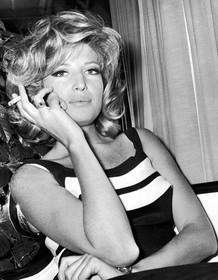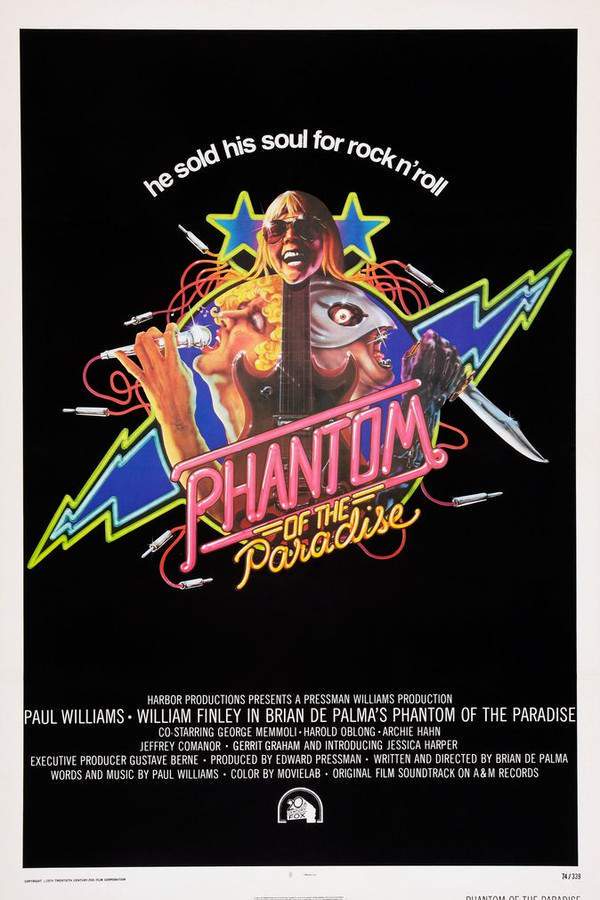The Phantom of Liberty (re-release) 2002

This subversive comedy-drama from Luis Buñuel presents a series of surreal and loosely autobiographical vignettes spanning centuries. A dying patriarch and inept authorities are among the diverse characters whose lives intersect in unexpected ways. The film explores taboo subjects such as mortality, morality, and the complexities of the human condition through a tapestry of chance encounters and dreamlike sequences.
Does The Phantom of Liberty (re-release) have end credit scenes?
No!
The Phantom of Liberty (re-release) does not have end credit scenes. You can leave when the credits roll.
Meet the Full Cast and Actors of The Phantom of Liberty (re-release)
Explore the complete cast of The Phantom of Liberty (re-release), including both lead and supporting actors. Learn who plays each character, discover their past roles and achievements, and find out what makes this ensemble cast stand out in the world of film and television.
External Links and Streaming Options
Discover where to watch The Phantom of Liberty (re-release) online, including streaming platforms, rental options, and official sources. Compare reviews, ratings, and in-depth movie information across sites like IMDb, Wikipedia, Rotten Tomatoes or Metacritic.
Take the Ultimate The Phantom of Liberty (re-release) Movie Quiz
Challenge your knowledge of The Phantom of Liberty (re-release) with this fun and interactive movie quiz. Test yourself on key plot points, iconic characters, hidden details, and memorable moments to see how well you really know the film.
The Phantom of Liberty Quiz: Test your knowledge of the enigmatic and surreal narrative of 'The Phantom of Liberty' with this diverse quiz.
What year is the movie predominantly set in, when depicting the scene in Toledo?
1808
1908
1988
2008
Show hint
Full Plot Summary and Ending Explained for The Phantom of Liberty (re-release)
Read the complete plot summary of The Phantom of Liberty (re-release), including all major events, twists, and the full ending explained in detail. Explore key characters, themes, hidden meanings, and everything you need to understand the story from beginning to end.
The film begins at an auction held in the Paris Opera House, which is currently closed, where various props are being sold to raise funds. A notable item for sale is a stuffed monkey dressed in Persian robes, playing the cymbals while perched on a music box, which an older man in a wheelchair purchases, holding it close to him. As the auction proceeds, a chandelier—previously broken but now restored—is revealed, whisking us back to 1870 during a vibrant performance of Hannibal by Chalemau.
During rehearsals, the Opera manager announces his departure to Australia, leaving the Opera House under the new management of Gilles André and Richard Firmin. Their initial rehearsal is jolted when a prop falls on the lead diva, Carlotta, leading her to storm out and refuse to sing. Subsequently, Madame Giry [Miranda Richardson], the ballet instructor, persuades the new owners to cast Christine Daaé [Emmy Rossum], a gifted dancer, to fill Carlotta’s role. Following a mesmerizing performance of “Think of Me,” Christine retreats to a chapel beneath the Opera House to pray for her late father. There, she is joined by her best friend, Meg [Jennifer Ellison], who inquires about Christine’s newfound singing talent in “Angel of Music.”
Soon enough, Christine’s childhood acquaintance, Raoul, the Vicomte de Changy and a patron of the Opera House, visits her dressing room. After recognizing her from the audience, he invites her to a party before departing to prepare, leaving Christine locked in her room. At this moment, the Phantom [Gerard Butler], enraged by Raoul’s influence over Christine, lures her to a mirror, guiding her to his lair beneath the Opera House, where he confesses his feelings for her in “Music of the Night.” When she unmasks him, revealing his grotesque visage, the Phantom erupts in anger but soon breaks down in vulnerability, expressing a deep sorrow for his appearance with “I wish I didn’t have a loathsome gargoyle face.”
With Christine temporarily away, André and Firmin begin to worry about her absence, just as the Phantom begins to send ominous notes marked “O.G.” (Opera Ghost), demanding Christine’s lead role in the upcoming opera Il Muto. Ignoring his demands, they attempt to reinstate Carlotta, which incites the Phantom’s wrath. When he curses Carlotta’s voice, giving it the sound of a toad, the managers have no choice but to elevate Christine to star status.
As Christine prepares for her new role, Joseph Buquet [Kevin McNally] uncovers the Phantom’s whereabouts but is caught and hanged in front of a horrified audience. This dark event drives Christine, now frightened, to the roof, where Raoul professes his love, assuring her of his unwavering support in “All I Ask of You.” Unfortunately, the Phantom overhears, shattering his hopes.
Three months later, the Opera House is blooming with activity and, during a vibrant masquerade ball, the Phantom crashes the festivities to showcase his new opera, Don Juan, issuing a stern ultimatum to the managers. Deeply affected, Christine pays a visit to her father’s grave, where she encounters the Phantom once more. Tensions escalate when Raoul intervenes, leading to an intense sword battle with the Phantom before fleeing with Christine.
Finally, during the tense performance of Don Juan, the Phantom indeed makes an unforeseen appearance after the murder of Piangi, which allows him to take his place on stage. Christine sings alongside him, confessing her feelings. Meanwhile, Raoul watches helplessly as the unraveling drama reveals Christine’s affection for the Phantom. When the Phantom reveals his face to the audience amidst an inferno caused by a collapsed chandelier, he takes Christine down to his lair, presenting her with a heart-wrenching decision: either stay with him and let Raoul go free or abandon him and condemn Raoul to death.
Choosing compassion, Christine opts to stay with the Phantom momentarily, telling him he is not alone before sealing their moment with a passionate kiss. The Phantom, realizing the weight of his actions, makes the selfless choice to free both Christine and Raoul. Heartbroken, Christine relinquishes the Phantom’s ring as she departs in a boat with Raoul, casting a sorrowful glance back at him, fully aware of the love that lingers.
The narrative then shifts to 1919, revealing the older gentleman, now known as Raoul, leaving the music box monkey at Christine’s grave. He discovers a rose, tied with a black ribbon—an emblem of the Phantom’s enduring love for Christine, reminding Raoul that her heart had always belonged to the Phantom.
Uncover the Details: Timeline, Characters, Themes, and Beyond!

Coming soon on iOS and Android
The Plot Explained Mobile App
From blockbusters to hidden gems — dive into movie stories anytime, anywhere. Save your favorites, discover plots faster, and never miss a twist again.
Sign up to be the first to know when we launch. Your email stays private — always.
Discover Film Music Concerts Near You – Live Orchestras Performing Iconic Movie Soundtracks
Immerse yourself in the magic of cinema with live orchestral performances of your favorite film scores. From sweeping Hollywood blockbusters and animated classics to epic fantasy soundtracks, our curated listings connect you to upcoming film music events worldwide.
Explore concert film screenings paired with full orchestra concerts, read detailed event information, and secure your tickets for unforgettable evenings celebrating legendary composers like John Williams, Hans Zimmer, and more.


The Phantom of Liberty (re-release) Themes and Keywords
Discover the central themes, ideas, and keywords that define the movie’s story, tone, and message. Analyze the film’s deeper meanings, genre influences, and recurring concepts.

Unlock the World of Movies with Our Comprehensive Wiki
Dive into our Movie Wiki for in-depth film encyclopedia entries, including cast biographies, production trivia, plot synopses, behind-the-scenes facts, and thematic analyses. Whether you’re researching iconic directors, exploring genre histories, or discovering hidden easter eggs, our expertly curated movie database has everything you need to fuel your cinematic passion.

Similar Movies To The Phantom of Liberty (re-release) You Should Know About
Browse a curated list of movies similar in genre, tone, characters, or story structure. Discover new titles like the one you're watching, perfect for fans of related plots, vibes, or cinematic styles.
Quick Links: Summary, Cast, Ratings, More

What's After the Movie?
Not sure whether to stay after the credits? Find out!
Explore Our Movie Platform
New Movie Releases (2025)
Famous Movie Actors
Top Film Production Studios
Movie Plot Summaries & Endings
Major Movie Awards & Winners
Best Concert Films & Music Documentaries
Movie Collections and Curated Lists
© 2025 What's After the Movie. All rights reserved.
































